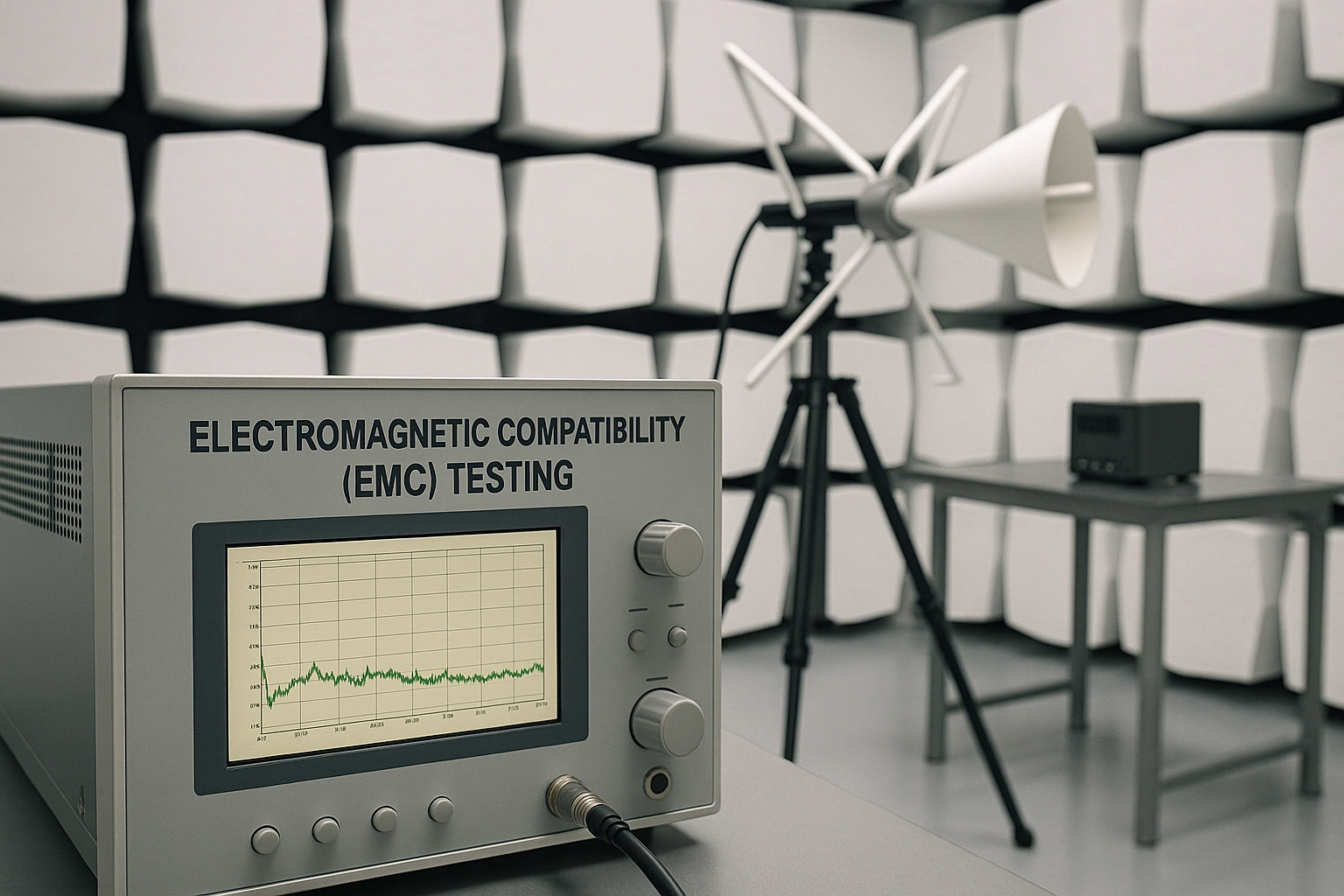MIL STD 461 RS103 Vehicle Radiated Immunity EMC Test
The MIL STD 461 RS103 vehicle radiated immunity test is a critical component of the broader Electromagnetic Compatibility (EMC) testing framework. This standard ensures that electronic devices and systems perform satisfactorily in electromagnetic environments without causing harmful interference to other equipment. The test evaluates how well a vehicle's electrical components can withstand exposure to electromagnetic fields, which are generated by various sources such as radar, communication equipment, and other vehicles.
The MIL STD 461 RS103 is widely used by the defense industry due to its stringent requirements for robustness against interference. The test aims to ensure that military-grade vehicles can operate reliably in environments where electromagnetic emissions are present. This is crucial not only for the integrity of critical systems but also for safety and operational effectiveness.
The testing procedure involves exposing a vehicle or its components to controlled electromagnetic fields, typically at specific frequencies and power levels. The goal is to determine if the electronic parts of the vehicle can function correctly under these conditions without causing interference elsewhere. This test is particularly important in ensuring that new technologies are compatible with existing systems.
The apparatus used for this testing includes high-power transmitters capable of generating strong electromagnetic fields, along with specialized measurement instruments to monitor and analyze the performance of the tested components. The specimen preparation involves configuring the vehicle or its subsystems according to standard protocols to ensure accurate results.
Acceptance criteria are strictly defined by MIL STD 461 RS103. Systems must demonstrate a specified immunity level across various frequency bands, typically ranging from several MHz up to hundreds of MHz. Failure to meet these criteria can lead to significant issues in operational reliability and safety. Compliance with this standard is essential for ensuring that vehicles perform reliably under all expected conditions.
The importance of MIL STD 461 RS103 extends beyond the defense sector into other areas where electromagnetic interference could be a concern, such as aerospace or advanced transportation systems. The test ensures that new technologies integrate seamlessly with existing infrastructure without causing disruptions. This is particularly relevant in an era where electronic components are increasingly integrated into all aspects of vehicle design.
The MIL STD 461 RS103 test is not just about compliance; it's also a tool for innovation and improvement. By subjecting vehicles to rigorous testing, engineers can identify potential weaknesses early on, allowing for design modifications that enhance overall robustness and reliability. This proactive approach ensures that products are not only compliant but also superior in terms of performance.
Given the complexity and importance of this test, it is essential to partner with a laboratory that has extensive experience in performing MIL STD 461 RS103 tests. Our facility offers state-of-the-art equipment and highly skilled engineers who can provide comprehensive testing services tailored to your specific needs.
Applied Standards
The MIL STD 461 RS103 EMC test is based on several internationally recognized standards that define the requirements for electromagnetic compatibility. These include:
- ISO/IEC 80004-1: General principles and definitions.
- IEEE C62.41-1995: General criteria for electromagnetic interference from radio stations, broadcast transmission systems, and radar installations to which the military is subject.
- IEC 61000: Series of standards that address EMC issues in electrical and electronic products.
The MIL STD 461 RS103 specifically focuses on radiated immunity testing for vehicles, ensuring they can withstand electromagnetic interference without failing. Compliance with these standards is crucial for maintaining the integrity and reliability of defense systems.
Quality and Reliability Assurance
The MIL STD 461 RS103 test plays a vital role in quality assurance by ensuring that vehicles meet stringent electromagnetic compatibility requirements. Our laboratory adheres to rigorous protocols to maintain the highest standards of testing accuracy and reliability.
We employ advanced instrumentation, such as high-power transmitters and specialized measurement equipment, to simulate real-world electromagnetic environments. This allows us to test specimens under conditions that closely mimic actual operational scenarios, providing more accurate insights into potential issues.
Our team of experienced engineers ensures that every aspect of the testing process is conducted meticulously. From initial specimen preparation to final data analysis, each step is carefully monitored and documented. This attention to detail guarantees that results are both precise and repeatable.
The test results provide critical feedback on the performance of vehicle systems under electromagnetic interference conditions. By identifying any vulnerabilities early in the development cycle, we help ensure that design modifications can be made before production begins. This proactive approach not only enhances product reliability but also reduces costly rework downstream.
Our commitment to quality and reliability is reflected in our adherence to strict quality control measures throughout the testing process. We consistently strive to meet and exceed industry standards, ensuring that every test conducted meets the highest levels of accuracy and precision.
International Acceptance and Recognition
- Australia: MIL STD 461 RS103 is recognized for its rigorous testing protocols in the defense sector. Compliance ensures interoperability with international systems.
- Canada: The standard is widely used to ensure that vehicles meet stringent electromagnetic compatibility requirements, enhancing reliability and safety.
- New Zealand: MIL STD 461 RS103 testing is a key requirement for defense and aerospace applications, ensuring compliance with international standards.
- United Kingdom: The UK recognizes MIL STD 461 RS103 as an essential standard for ensuring the electromagnetic compatibility of vehicles in complex operational environments.
- United States: MIL STD 461 RS103 is a widely accepted standard for defense systems, ensuring that vehicles can operate reliably in challenging electromagnetic conditions.
The international acceptance of MIL STD 461 RS103 underscores its importance across various sectors. Compliance with this standard ensures interoperability and reliability, making it an essential requirement for many applications.





